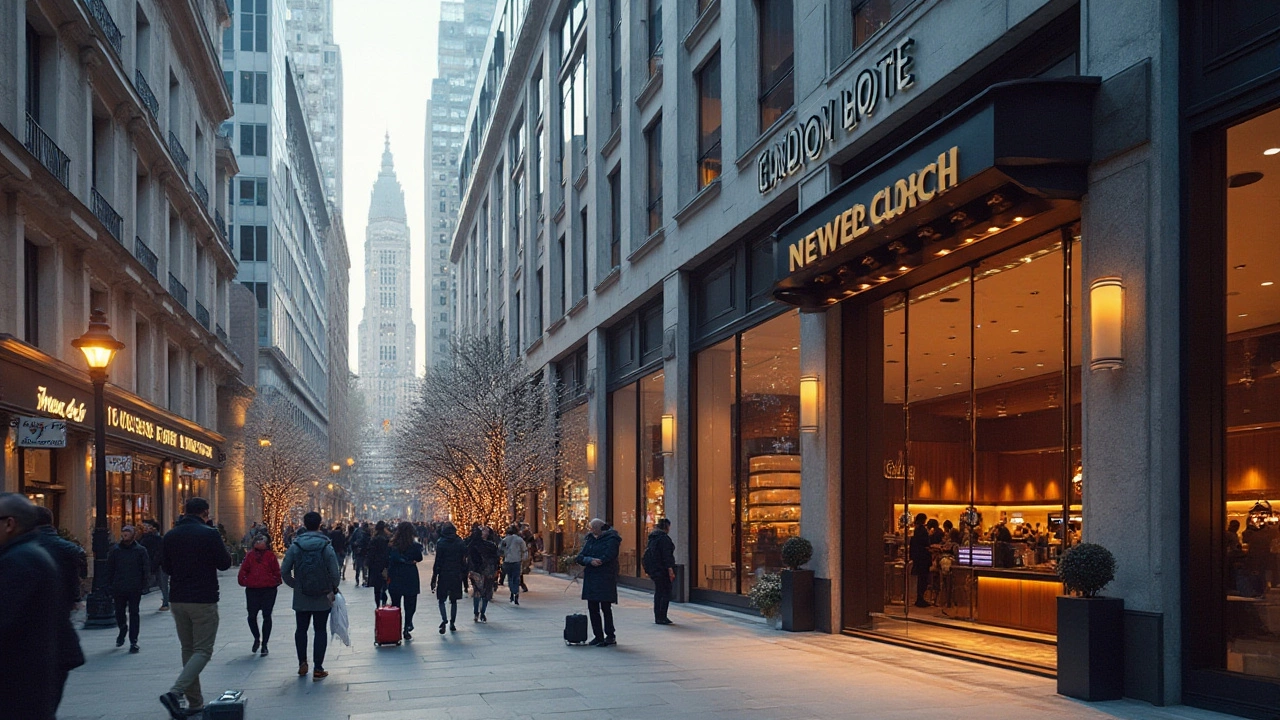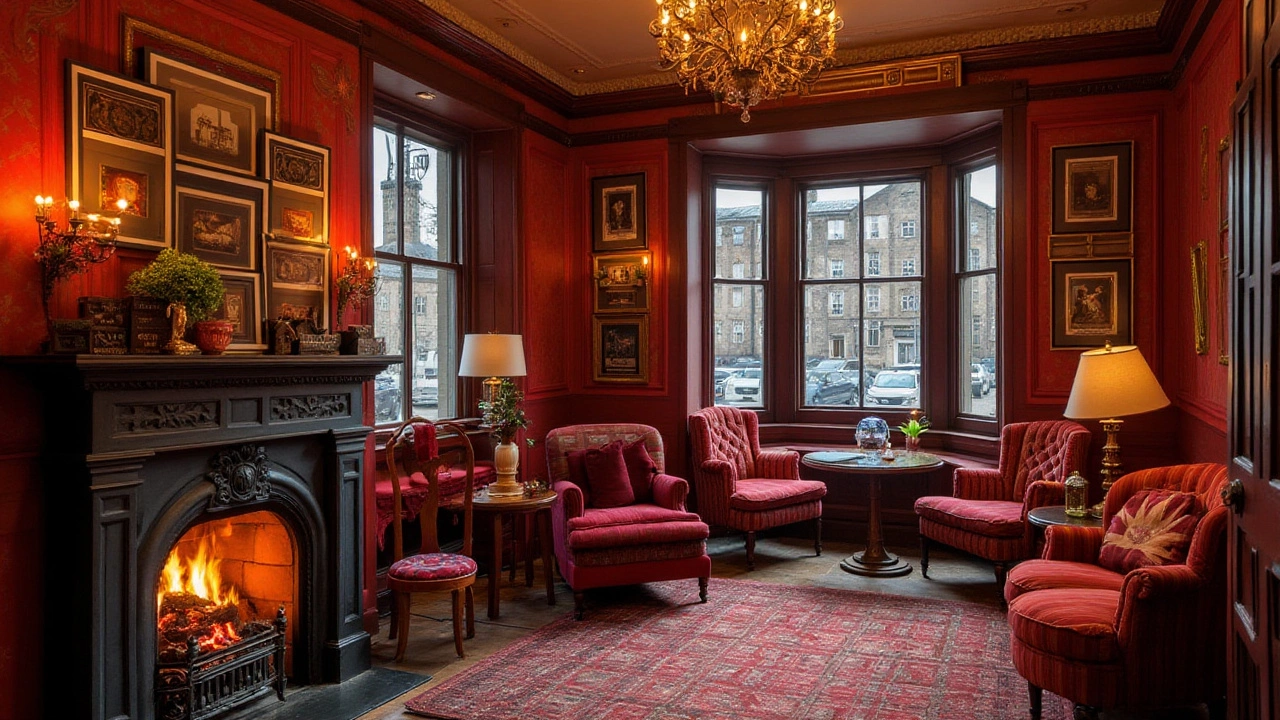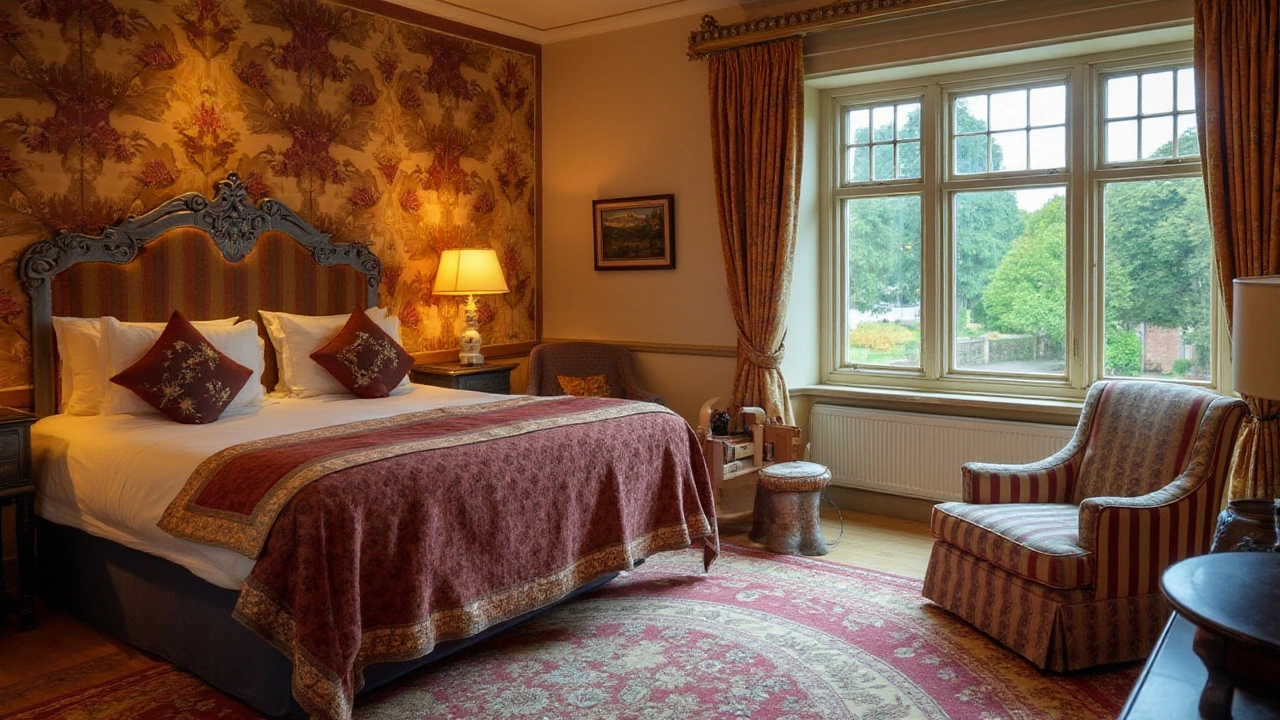When planning a getaway, one of the foremost decisions you'll face is selecting the right type of accommodation. While regular hotels have been the long-standing choice for many travelers, the rise of boutique hotels has introduced an enticing alternative.
Regular hotels typically belong to extensive chains, boasting uniformity in design, services, and amenities. They cater to a broad audience, ensuring consistent standards across various locations.
On the other hand, boutique hotels offer a break from the norm, providing uniquely styled rooms often reflective of the locale's charm. With a limited number of rooms, these hotels concentrate on creating a bespoke and intimate environment.
If you're drawn to creativity, individuality, and a personalized touch during your travels, boutique hotels may just be your perfect match. Delve into the nuances that set these two accommodation styles apart and discover what aligns best with your travel aspirations.
- Key Characteristics of Regular Hotels
- Unique Features of Boutique Hotels
- Guest Experience in Boutique Hotels
- Location and Cultural Integration
- Tips for Choosing the Right Hotel Type
Key Characteristics of Regular Hotels
Regular hotels have become a staple fixture in the travel industry, providing travelers with a sense of familiarity and reliability. These hotels are often part of large chains, such as Hilton, Marriott, or Holiday Inn, which allows them to maintain a consistent standard across all their branches. Guests coming from varied backgrounds and travel purposes, whether business or leisure, can predict the level of service and comfort they will receive, largely due to this standardization. Rooms are typically designed in a universally appealing manner, with simple, functional decor that prizes comfort and practicality. This predictability is a major draw for those who value knowing exactly what to expect during their stay.
Most regular hotels are equipped with a range of facilities that aim to cater to a wide spectrum of customer needs. Amenities like pools, gyms, business centers, and conference rooms are common, reflecting an attempt to balance the needs of both leisure and business travelers. Here, convenience is key—allowing guests to conduct meetings and relax without having to leave the premises. A fine example of the evolution of regular hotels accommodating modern demands is the integration of technology. According to a statement by Travel Weekly, "Tech-savvy hotels enhance guest experience through app-based check-ins, room customizations, and personalized hospitality services." These technological advancements help meet the expectations of contemporary travelers who are often in search of streamlined processes and minimal friction.
Regular hotels are typically located in key areas such as city centers and transport hubs, maximizing accessibility for visitors traveling for different purposes. In urban hotspots, you'll often find regular hotels strategically placed near business districts, entertainment zones, and airports, making them an easy choice for tourists and business travelers alike. Many regular hotels capitalize on their prime locations to attract guests who prioritize accessibility to local attractions or business meetings over localized charm and uniqueness. This aspect ensures that a traveler’s practical needs are always met with minimal fuss and maximal convenience.
For those who book accommodations through popular platforms or travel agencies, regular hotels are frequently included in package deals or bundled options. These partnerships often translate into attractive discounts and promotions, making the hotels even more appealing to cost-conscious travelers. Moreover, loyalty programs play a significant role in attracting repeat guests. Many of the larger hotel chains offer robust loyalty programs that provide rewards, upgrades, and special experiences, creating a strong incentive for travelers to remain within the ecosystem of these chains.
When considering the role of regular hotels in the broader landscape of travel, it’s important to acknowledge their ability to adapt and scale in response to changing global conditions. These hotels often initiate pilot programs to test new ideas, striving to balance operational efficiency with guest satisfaction. Looking ahead, they focus on sustainability by implementing practices such as reduced energy consumption and eco-friendly initiatives as part of their corporate responsibility. This progressive attitude towards sustainability is gradually influencing the decision-making process of environmentally conscious travelers.
Unique Features of Boutique Hotels
Boutique hotels have emerged as a favored choice among travelers who seek a more personalized and intimate lodging experience. Unlike their larger counterparts, these unique accommodations offer a distinct charm and ambiance that sets them apart. One of the most compelling features of a boutique hotel is its emphasis on individuality in design. Each property tends to weave a creative theme, often tied to the cultural or historical context of the location. This artistic flair can be evident in the architecture, interior decor, and even the choice of art pieces adorning the walls. The goal is to offer guests not just a room but a space that feels alive with local color and character.
Another hallmark of boutique hotels is their dedication to exceptional, personalized service. Due to their smaller scale, which usually includes fewer than 100 rooms, staff members can cater to guests with remarkable attention to detail. This level of service extends beyond mere hospitality. Employees are often knowledgeable about the area’s history and attractions, providing insights that you won’t find in guidebooks. Unlike standard chain hotels, where interactions may feel perfunctory, the personalized engagement at a boutique hotel contributes to a sense of belonging and significance for each guest. According to a report from the Boutique & Lifestyle Lodging Association, nearly 90% of travelers indicated that personalized experiences are crucial in their accommodation choice, underscoring the growing appeal of these specialized hotels.
Location is a strategic element in the allure of a boutique hotel. Often situated in trendy neighborhoods or historic districts, they offer convenient access to local attractions. This sense of place isn't just about proximity, though. Many boutique hotels incorporate design elements or offer amenities that celebrate the neighborhood, such as locally sourced dining options or collaborations with local artists and businesses. This engenders a symbiotic relationship with the community, where the hotel becomes a vital part of the area's social and cultural fabric. As Lydia Fitzgerald, a renowned hospitality consultant, stated,
"Boutique hotels offer more than just a place to sleep; they provide an immersive cultural experience."
In a world that increasingly values sustainable travel, many boutique hotels are at the forefront of eco-friendly and sustainable practices. From sourcing local, organic products for their restaurants to implementing energy-efficient systems within their operations, boutique hotels are often pioneers in responsible tourism. These sustainable practices not only benefit the environment but also align with the values of the modern traveler, who is often looking to make positive contributions to the locations they visit. This commitment to sustainability is frequently highlighted in property brochures and online, where boutique hotels proudly showcase their green certifications and partnerships with eco-conscious brands. In a survey by Green Key Global, it was noted that hotels that prioritize sustainability tend to have a higher rate of customer satisfaction, which suggests a strong correlation between environmental responsibility and guest approval.

Guest Experience in Boutique Hotels
When guests choose to stay at a boutique hotel, they are often seeking more than just a place to lay their head at night. These hotels excel in crafting unique, personal experiences that are ingrained in the very atmosphere of the property. The allure of these intimate venues often begins with their individualized decor. Unlike the consistent layout found in a regular hotel, each room in a boutique hotel can tell its own story. Often, you’ll find a thematic approach, with design motifs that reflect the local culture or a specific historical period. This attention to detail extends beyond visuals; many boutique hotels offer bespoke amenities and tailored services, understanding that guest satisfaction isn't just about comfort, but about crafting memorable moments.
One of the distinguishing aspects of boutique hotels is the personalized service. Guests can expect staff that are genuinely invested in their wellbeing, often anticipating needs before they're expressed. This level of service transforms a stay into something akin to visiting a friend’s exquisite home. The intimate size of these hotels means that the staff-to-guest ratio is typically higher than in major chains, allowing for a more attentive and thorough service. Those working in boutique settings often share a passion for hospitality that's reflected in the thoughtful recommendations they provide, be it for dining, local experiences, or hidden travel gems in the area.
Dining at a boutique hotel is not merely an amenity but often a highlight. Many boutique establishments feature on-site restaurants that prioritize local and organic ingredients. Menus are crafted thoughtfully, often changing with the seasons or telling a culinary story of the region. Guests find such culinary experiences to be distinctive, often infused with creativity and flair.
"At a good boutique hotel, the guest is not just an anonymous number – it's all about fostering connections and sharing in a genuine cultural exchange," notes Katherine Leo, a respected travel consultant.Whether it’s a delicious breakfast spread or an evening cocktail event, the focus is always on quality and experience.
Beyond the walls of the hotel, guests are invited to immerse themselves in the community. Boutique hotels often act as conduits to the local culture, frequently partnering with local artisans, tour guides, and businesses. This affiliation creates a network that enables guests to engage deeply with their surroundings. For example, a city-based boutique hotel might offer exclusive access to private gallery openings or provide guests with personalized shopping tours. These curated experiences are tailored to enrich a guest's visit far beyond what you might typically find at a regular hotel.
Choosing a boutique hotel is ideal for travelers who place a premium on authenticity and personalization. With the advent of eco-conscious travel, many boutique hotels have embraced sustainable practices, focusing on reducing their carbon footprint while enhancing guest experience. From solar-powered facilities to farm-to-table dining options, these establishments are paving the way for responsible tourism, further elevating the value they offer to guests. By aligning with these values, guests contribute to a positive impact on the locale, often feeling like they've become a part of something bigger than themselves. It's this harmonious blend of unique experiences, local integration, and excellent service that makes boutique hotels so appealing to discerning travelers.
Location and Cultural Integration
The essence of a boutique hotel often lies in its profound connection with its location and the culture it embodies. Unlike regular hotels that focus on universal appeal and standardized layouts meant to cater to the broadest audience possible, boutique hotels direct their attention to the locale in a way that is both intimate and profound. Their smaller size and personal management often allow them to integrate seamlessly into their surroundings, offering guests an authentic slice of local life.
Much of this integration stems from their choice of location. Boutique hotels are frequently found in vibrant neighborhoods, cultural hubs, or historic districts, which immediately lends them character. This strategic placement not only provides guests with easy access to local attractions, shops, and restaurants but also immerses them in the everyday life of the region. This contrasts with many chain hotels that are often located near highways or business districts, prioritizing accessibility over cultural immersion.
However, it is not merely about where they are located but also how they reflect the neighborhood or region they are in. The interiors of boutique hotels often draw heavily from the local culture—be it through artworks, traditional furnishings, or using local materials in construction. For example, a boutique hotel in Morocco might feature intricate tile work, rich textiles, and traditional lanterns, offering guests a stay that feels culturally enriching. This distinctive approach resonates with the growing number of travelers who seek accommodations that mirror their travel experiences, incorporating learning and personal connection into their journey.
"A truly beautiful place is the one which reflects the soul of its environment and leaves an imprint on ours," a traveler once noted, encapsulating the unique allure of boutique hotels.
Moreover, boutique hotels often engage with local artisans and communities for their decor and amenities, creating a symbiotic relationship that benefits both the hotel and the local economy. Such interactions not only infuse the hotel experience with cultural authenticity but also provide travelers with opportunities to support and connect with the community. This kind of cultural assimilation can be seen in the menus offered by boutique hotels, too, where chefs often source fresh, local ingredients to create regional dishes, offering guests a taste of the local cuisine right in the comfort of their hotel.
These elements collectively contribute to creating a unique experience that aligns with a destination’s cultural narrative. Travelers, particularly those seeking connections beyond conventional sightseeing, find this kind of homegrown enrichment appealing. In a world growing more homogeneous, boutique hotels stand out as a refreshing deviation, offering sincerity and soul rather than scale and sameness. Whether you're sipping wine in a Tuscan villa or admiring the sleek, Scandinavian design in Stockholm, the cultural touchpoints that characterize a boutique hotel stay can transform even a brief visit into a deeply engaging and memorable experience.

Tips for Choosing the Right Hotel Type
Choosing between a boutique hotel and a regular hotel might seem daunting at first, but it becomes simpler when you consider your specific travel needs and preferences. One of the first things to reflect upon is the purpose of your trip. For business travelers who might need consistent services like 24-hour room service, gym facilities, and a business center, a regular hotel often meets these requirements. These establishments typically provide a standardized experience no matter their location, which can be comforting when your focus is on work, not surprises.
For those seeking a more relaxed or personal escape, the intricate charm of a boutique hotel could be more appealing. These hotels often immerse you in the local culture, offering unique decor that reflects the history and spirit of the setting. This adds an additional layer to your travel experience, making it more memorable. For instance, many boutique hotels prioritize aesthetics and thematic designs. Staying at such a place can feel like inhabiting a story rather than just being in a room—each space having a narrative thread woven into the fabric of your visit.
Consider Your Location and Environment
Another crucial factor to weigh is the location and surrounding environment of your accommodation. Boutique hotels often find their homes in trendy districts or up-and-coming neighborhoods, providing easy access to local attractions, eateries, and vibrant cultural spots. If you relish exploration and wish to immerse yourself in local life, this type of setting can be integral to your trip. This immersion can vary from the architectural uniqueness to personalized local recommendations provided by the hotel staff. Their knowledge often provides a deeper and richer exploration than any guidebook could.
On the other hand, regular hotels frequently occupy centralized locations convenient for accessing major tourist attractions or business hubs. If your trip's purpose is aligned with these hubs, then a centrally located regular hotel may save you precious transit time. It's worth noting that these establishments often offer deals or points through loyalty programs, adding potential value to frequent travelers.
"Travel is the only thing you buy that makes you richer." - Anonymous
Cost can also play a substantial role in your decision-making process. Generally, regular hotels offer a range of price points due to their volume of rooms and variety of chains, which can cater to both budget-conscious travelers and luxury seekers alike. Boutique hotels, focusing on luxury and unique experiences, might come at a premium, but this is not always the case. A myriad of boutique options exists that suit various budgets; however, they often provide value through enhanced aesthetics and personal service.
Look at the Personal Touch
Consider what level of personalized service you desire during your stay. Boutique hotels are renowned for their custom-oriented services often tailored to guest needs. This could include staff learning your name, offering tailored dining recommendations based on your tastes, or even organizing bespoke tours or experiences. Such personal touches can elevate your trip significantly, creating lasting memories.
Finally, reflect on what type of amenities are crucial for you. Regular hotels often come equipped with a suite of amenities such as pools, gyms, conference rooms, bars, and restaurants which can be invaluable depending on your needs. Meanwhile, boutique hotels may offer more bespoke pleasures like curated art collections or specialized wellness retreats. Understanding these factors can guide you in choosing the perfect accommodation that aligns with your travel goals.

